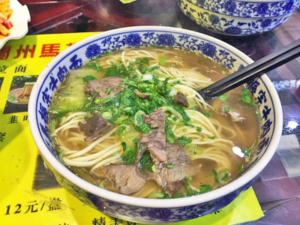This article belongs to the series “From the Middle East to the Middle Kingdom”—which is drawn from the leading ethnographic course helping Christians better understand China’s Hui Muslims.
How did the Hui become China’s second largest and most widely dispersed minority? Why do they simultaneously act superior and inferior to the Han majority? We find our first clues in the times of the Yuan.
Who hasn’t seen a Genghis Khan movie? The expansive Mongol-ruled Yuan Dynasty is a favorite in high school history books. What we may not realize is how many of the Hui ancestors moved into Chinese territory as late as the 13th and 14th centuries. We may be surprised to learn how much the Hui’s geographical spread, their expressions of Islam, and their awkward relations with the Han stem from Yuan-era policies.
The Mongols ranked different races and gave positions of power to those of higher rank. Naturally, Mongols ranked highest. West Asians were a little lower, followed by Northern (Han) Chinese. The Southern Chinese (南人, nanren, at the time not considered Han) were assigned to the bottom of the pile.
The Mongol Khans were keenly aware of their foreignness. They perceived a threat that local governors might side with their own people rather than submit to Mongol rulers. Their solution was a “people swap” policy. They moved large numbers of Persians, Iraqis, and Arabs East into China—some estimates over a million—and relocated East Asians to the West. In this era of cultural exchange, many Mongols and some Han converted to Islam, further entrenching the religion as the one unifying factor of the people who would become known as the Hui.
The first appearance of the word “Huihui” (回回, from which Hui is derived) was during this period. At the time, Turkic peoples living around China’s Western frontiers were known as “Huihu” (回鹘). Huihu came to refer loosely to any migrants from the West before it morphed into two separate terms: Huihui and Uyghur (维吾尔, Weiwu’er). Huihui became the linguistic equivalent of “Muslim.” Uyghur came to describe the Turkic people of Xinjiang and its surroundings and is still used today.
When the Chinese Communist Party (CCP) began listing minzu (ethnicities and people groups), Muslims who were essentially Chinese and not observably part of another ethnic group became Hui. We know from records of early anthropological efforts to classify citizens under the CCP that mistakes were made. Jews in Henan were classified as Hui, presumably because of their pork taboo. This illustrates how the overwhelmingly Han officials of the CCP looked at outward behaviors but cared little about the ideologies that drive each group.
The Yuan period is where much of the animosity between modern Han and Hui was conceived. As Muslims migrated all over China, the Han viewed their new neighbors with both fascination and disdain. They envied the privilege given to Huihui. Some adopted their religion, but most despised their foreign overlords and their mixed-race families. Here are two quotes from Han people in the Yuan period:
Their elephant noses all gone flat, their cat’s eyes dulled, all their hopes for a long life gone…Alas! When the tree falls, the monkeys scatter.
Even when they bathe, the Huihui still stink.
The Yuan Dynasty is a source of much pride among Hui people today. Some speak as if they can trace their lineage all the way back to this era. At the same time, we see the seeds of persistent disharmony between them and the Han. Yuan policies dispersed the ancestors of the Hui all over China, giving them prestige and opportunity to prosper. The period that followed, which part four of this series will address, brought much shame. The Ming rulers stripped away their status and diluted their bloodlines. Nevertheless, the Hui grew in number and cemented their identity as Chinese Muslims.
Image credit: Jéan Béller on Unsplash.

Julie Ma
Julie Ma (pseudonym) is a graduate of Sydney Missionary and Bible College (SMBC) and a member of the Angelina Noble Centre for women in cross-cultural missions research. She left her home in Australia over a decade ago to serve Hui Chinese Muslims alongside her Chinese husband. After all these years overseas, …View Full Bio
Are you enjoying a cup of good coffee or fragrant tea while reading the latest ChinaSource post? Consider donating the cost of that “cuppa” to support our content so we can continue to serve you with the latest on Christianity in China.